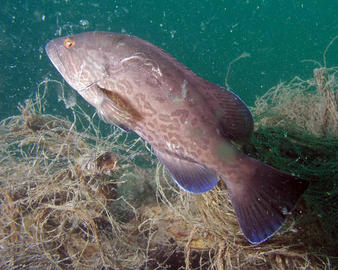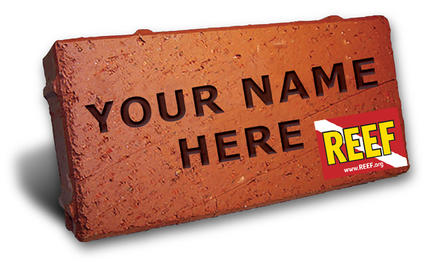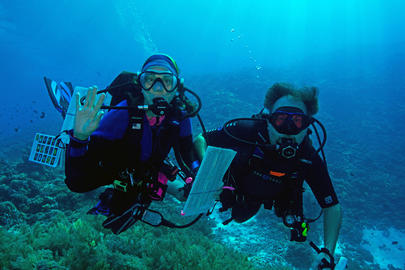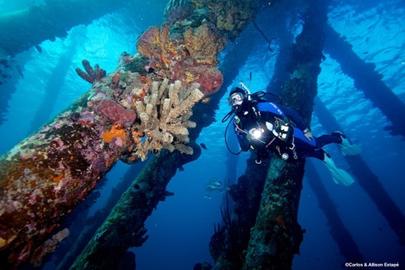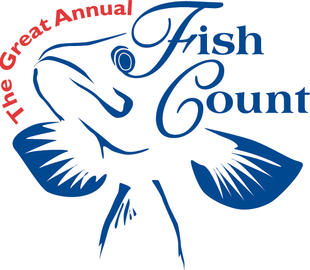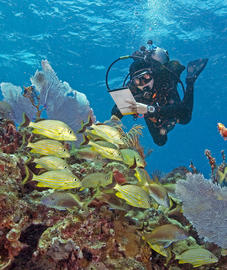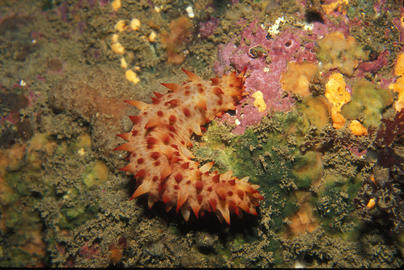We are excited to share the latest scientific paper to include REEF data, published this month in the journal ICES Journal of Marine Science. In this paper, authors use information on where REEF divers did or did not encounter three species of fisheries importance: red snapper, red grouper, and gag grouper. They then combined these data with 36 other data sets, each sampling different areas of the Gulf of Mexico, and created distribution maps for use in ecosystem models of the Gulf of Mexico.
In this paper, authors use data regarding where REEF divers did or did not encounter three species of fisheries importance: red snapper, red grouper, and gag grouper. They then combined these data with 36 other data sets, each sampling different areas of the Gulf of Mexico, and created distribution maps for use in ecosystem models of the Gulf of Mexico. These distribution maps picked up fish hotspots that are not identifiable by any individual data set, highlighting the complementary nature of the REEF data.
It’s not too late to become a citizen scientist in 2017! We still have a couple spaces remaining on our British Virgin Islands Field Survey this winter, December 3rd - 9th, and REEF surveyors of all levels are invited to participate. The British Virgin Islands (BVI) offer world-class diving and our REEF trip promises to be great. We have arranged a special itinerary with the Cuan Law liveaboard and the boat will explore some of the lesser-dived areas on the north side of the islands.
We are in the last few weeks of our summer fundraising campaign, and we need your help. Donations from our members are critical to REEF’s marine conservation efforts. In addition to supporting programs for marine biodiversity, fisheries management, and invasive species control, we are asking our members to make an extra donation this summer to help us build an Interpretive Center on the REEF Campus in Key Largo. Please help us continue to build our legacy of ocean conservation by being a part of this special campaign.
REEF members are at the heart of our grassroots marine conservation programs. Over 50,000 divers, snorkelers, students, and armchair naturalists stand behind our mission.
This month we highlight one of our many REEF couples - David Thompson and Luanne Betz, members since 2011. David and Luanne have collectively conducted 250 surveys and are active surveyors in several REEF regions. Both have achieved Level 5 Expert status in the TWA and Level 3 status in the CIP. Here's what they had to say about REEF:
Last week, Reef Environmental Education Foundation (REEF) celebrated the 150,000th fish survey processed in the Tropical Western Atlantic (TWA) survey region as part of the REEF Volunteer Fish Survey Project. Volunteer divers and snorkelers made this significant milestone possible. Over 11,000 REEF volunteers have submitted surveys at over 8,000 sites throughout Florida, the Caribbean, and Bahamas since the program’s beginnings in 1993. You can get involved with the Volunteer Fish Survey Project by attending a Great Annual Fish Count Event, taking place throughout the entire month of July!
Celebrating it's 25th year - the Great Annual Fish Count (GAFC) kicked off this weekend! During the entire month of July we encourage you to try your hand at conducting your first survey if you're new to our Volunteer Fish Survey Project, or to do a few more if it's been a while.
The GAFC began in 1992 when a small group of recreational divers and marine biologists conducted a visual fish count in California's Channel Islands National Park. The effort was modeled after the Audubon’s Christmas Bird Count and has now grown into an international event coordinated by REEF.
We are proud to announce that on July 1st 2017, the number of REEF Volunteer Fish Survey Project surveys conducted by volunteers in the Tropical Western Atlantic (TWA) region topped 150,000! The 150k surveys have been conducted by 11,123 volunteers at 8,837 sites in the TWA region (which includes the Caribbean, Bahamas, and Gulf of Mexico). The first surveys in the TWA were conducted 24 years ago in Key Largo.
Every month, scientists, government agencies, and other groups request raw data from REEF’s Fish Survey Project database. Recent examples of data requests and uses include:
- A researcher from the Ecology and Evolution Program at Rutgers University is using REEF data to understand bio-cultural homogenization on reefs.
- REEF data on California Sea Cucumber were provided to a researcher from Pacific Shellfish Institute to evaluate the status of the species in the REEF Pacific region (California through Alaska).

